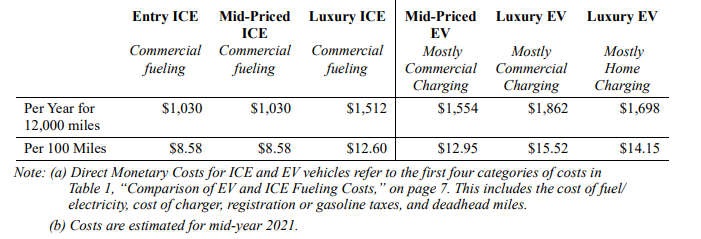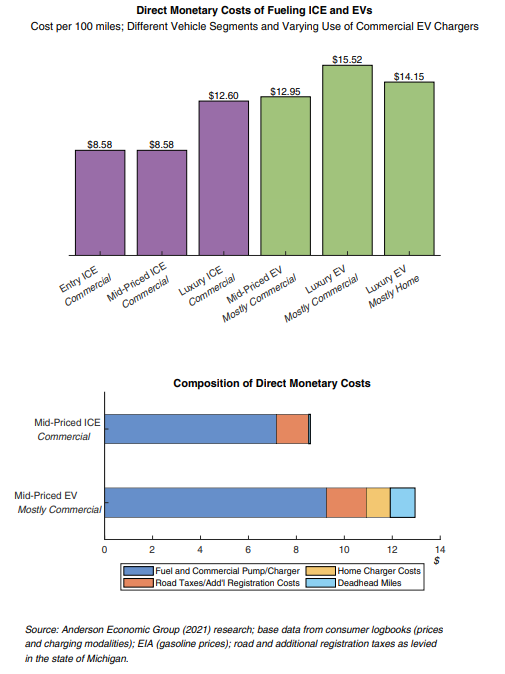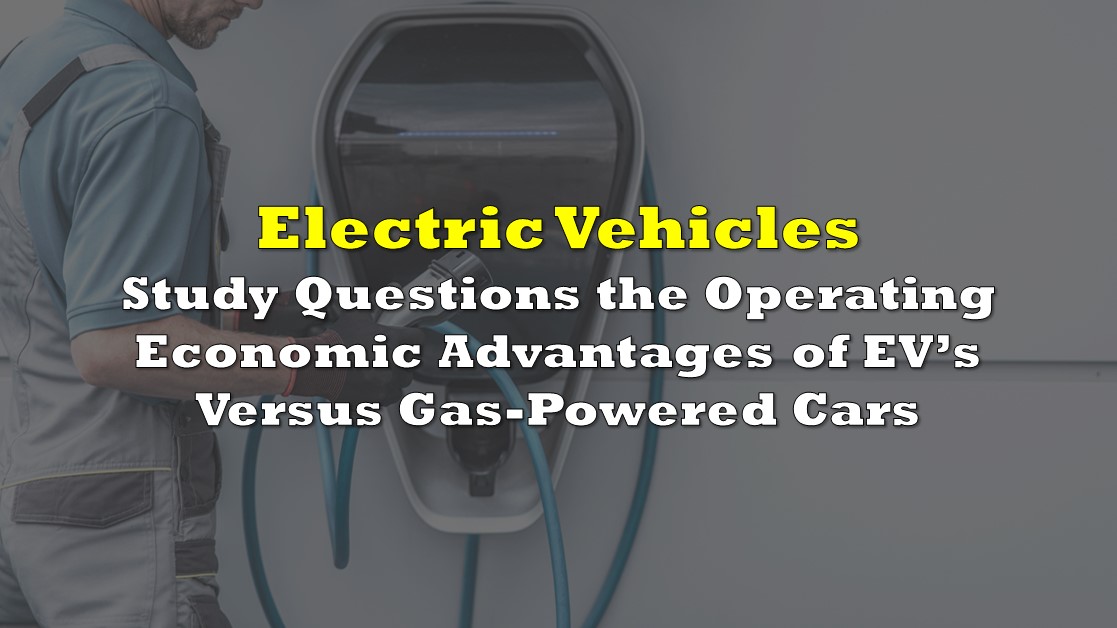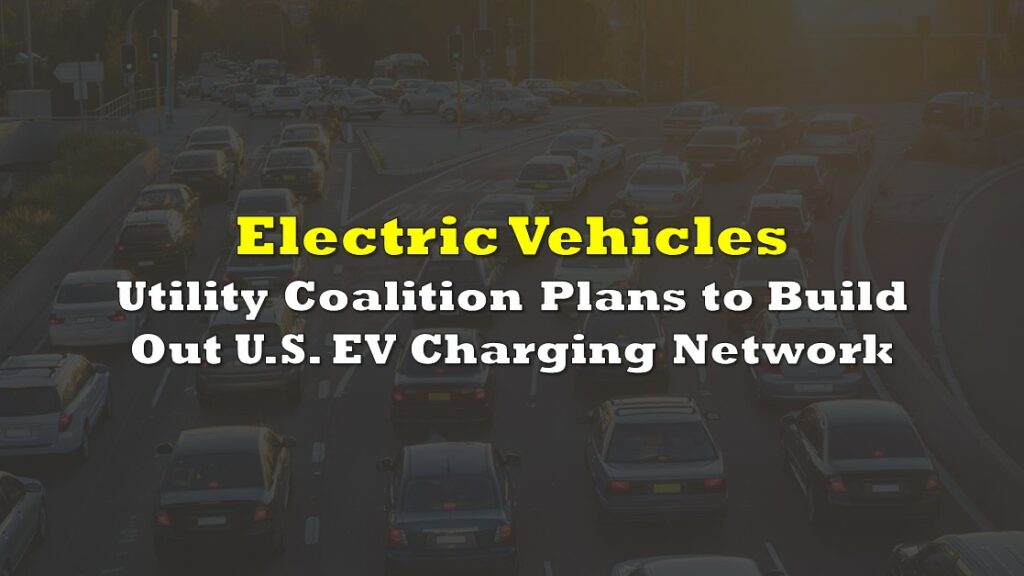On October 21, the consulting firm Anderson Economic Group issued a study comparing the costs of operating an electric vehicle (EV) versus the costs of driving a car with a conventional internal combustion engine. In an almost sacrilegious finding, particularly for a large group of auto makers who have embarked on “bet the company” plans to transition their offerings to EVs, the consulting firm concludes that the true cost of operating an EV exceeds that of a conventionally powered vehicle.
Factoring in four additional costs beyond residential electricity fees, the consulting firm concludes that a mid-priced gas-powered car with an efficiency of 33 miles per gallon costs US$8.58 to drive 100 miles, based on a regular gas price of US$2.81 a gallon. (Gas prices are above this level today.) In comparison, a mid-priced EV such as a Tesla Model 3 or a Chevrolet Bolt EV, costs US$12.95 to drive the same distance, including the costs of recharging using mostly a commercial charger.
Similarly, a luxury car with an internal combustion engine and an efficiency rating of 26 miles per gallon costs US$12.60 to drive 100 miles, based on US$3.25 per gallon premium gasoline. (Again, the current cost of premium is higher than this.) In contrast, a luxury EV like the Tesla Model S or X has operating costs of US$15.52 per 100 miles.

The additional costs which the Anderson Economic Group reflects in its analysis include:
- The cost of a residential charger. A Level 1 electric charger which uses a standard 120-volt, 20-amp wall outlet costs around US$600 per unit. A Level 1 charger can take 20 hours to charge a car. A must faster charging (just a few hours), 240-volt, Level 2 charger can cost US$1,600, including payments to an electrician for installation.
- The cost of commercial electricity, which the consultants said could range from US$0.31 to US$0.66 per kilowatt-hour, is dramatically higher than residential rates.
- An annual EV tax levied by individual states. For example, that fee ranges from US$135 to US$235 in Michigan depending on the model, according to the Anderson consulting firm.
- The cost entailed in driving unwanted miles to find and use a commercial charging station.

According to the Anderson Economic Group, this study differs from others, including a 2018 University of Michigan Transportation Research Institute report, because those investigations included only the cost of residential electricity and did not factor in other costs. The University of Michigan concluded that the average annual cost to operate an EV was US$458 compared with US$1,117 for a gasoline-powered vehicle.
While hardly definitive, the Anderson EV study raises questions regarding the heretofore “unquestioned” operating economic advantage of EVs versus gas-powered vehicles. Of course, as more commercial chargers are built, the cost of charging EVs should decline.
We also note that if the Anderson study were conducted today, gas-fired vehicles’ relative cost advantages would probably narrow from the figures listed above because gas prices have risen. Electricity prices are up as well, just not as much.
Information for this briefing was found via Edgar and the companies mentioned. The author has no securities or affiliations related to this organization. Not a recommendation to buy or sell. Always do additional research and consult a professional before purchasing a security. The author holds no licenses.









